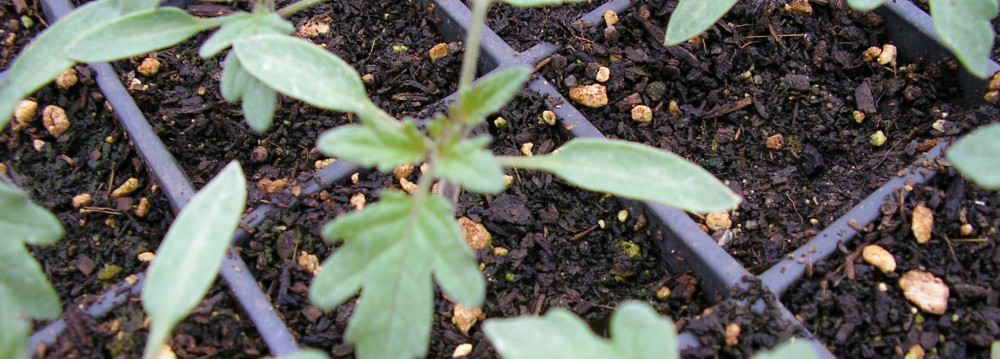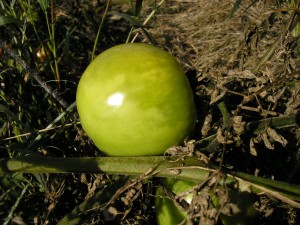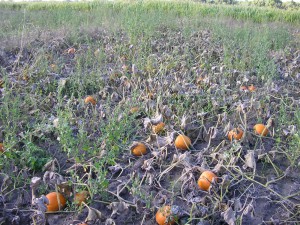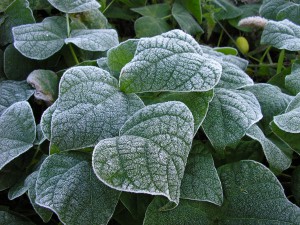Riverbend Farm Newsletter Sept. 13, 2014
We had our first frost of the season this morning. It was 32º at the house and colder out in the field. Up here everything was pretty frosty. Down in the field things were kind of frozen. The mustard and arugula leaves were very solid.
Most of the tomatoes were ruined. They are the very sensitive to low temperatures. Even a light frost will burst the cell walls under the skin and form a ‘bruise’. I don’t know what causes it but once they have been frosted the flavor changes and it is not the same as freezing tomatoes to preserve them. Well, the tomatoes got frosted pretty hard this morning, The greenest ones fared a little better, but almost all the leaves are shot. It will take a few days for the plants to decide if they are dead or not. If they survive the green tomatoes will ripen if the weather holds up. This tomato will not make it. The dark area on top was frozen.
The peppers and eggplant held up pretty well. There is a much better leaf canopy on the plants, compared to the tomatoes. The fruit is also much more solid so it takes longer to freeze. I’m sure there will be some losses, but we never get 100% of them anyway.
The squash hate any frosty weather. It does look like we will have a good crop of winter squash. Most of the squash appear to have matured before the low temps killed the plants. I think a little frost improves the flavor of the squash, making it a little sweeter.
The beans up in the seed garden did alright. The top leaves are just lightly toasted. The ones in the field are worse. It did not get cold enough to kill the corn crop, but unless a miracle happens it won’t mature. The largest ears are in the dough stage, but not showing any color.
The radish leaves look like they were scorched by the low temps. The roots are probably the best they have been all season, but the bad leaves make them a tough sell in the co-ops. Turnips are unaffected by the cold weather. The afore mentioned arugula and mustards looked fine this afternoon. Sometimes it takes a day or two for the damage to show up.
Yesterday afternoon we pulled up all the shallots and put them in piles. We covered the piles with two layers of tarps to keep the shallots warm. Freezing temperatures and onions do not go together very well. This morning it looked like they had all survived the night in fine form.
The cabbage and kale get better in this weather. They think that they are going to survive until next spring and go to seed. The low temperatures cause the starches to start turning into sugars, creating a natural antifreeze. Little do they know that we have other plans for them.
By the smell of the winter squash in the oven, it is getting to be time to eat.
Greg



